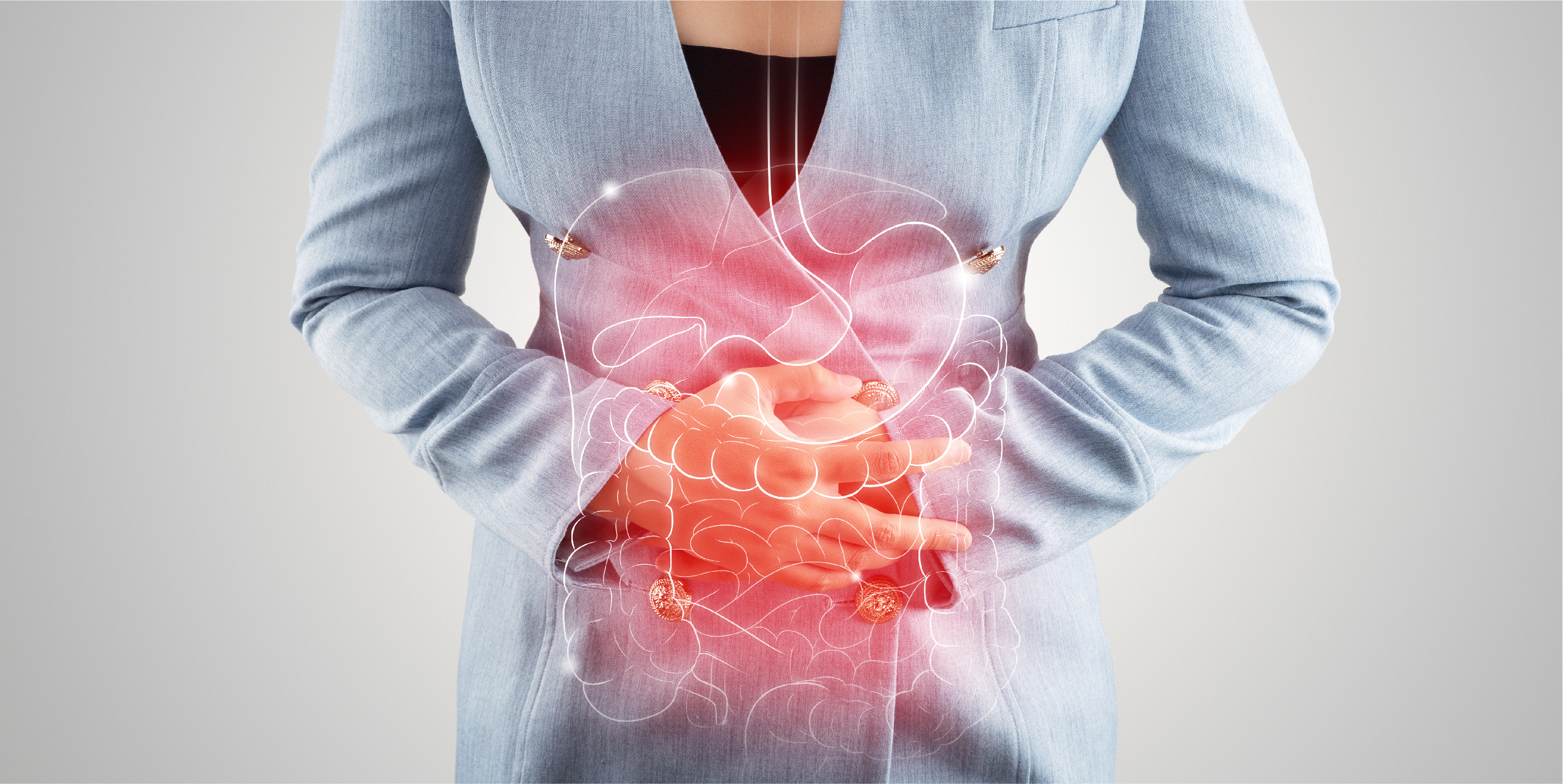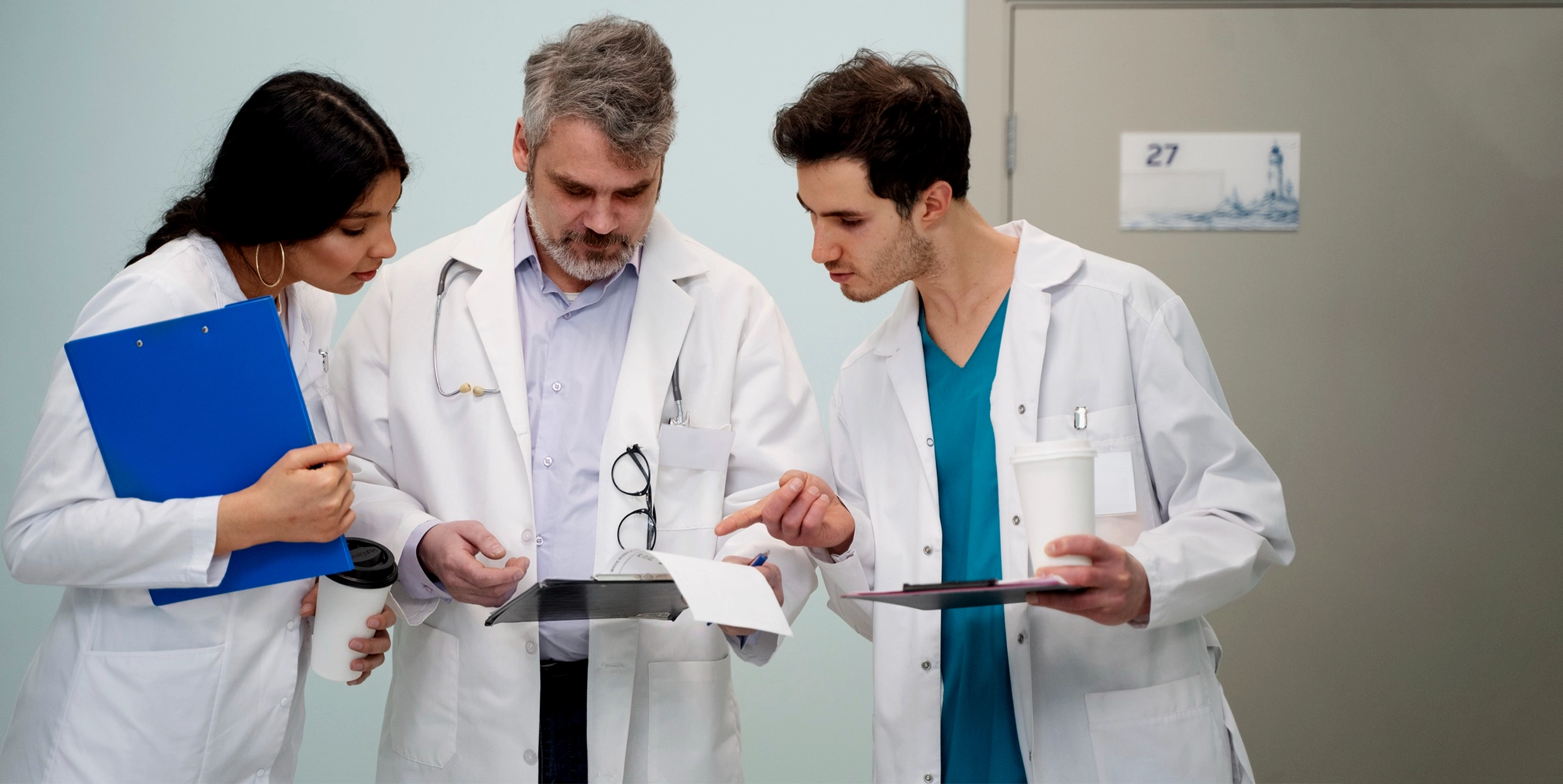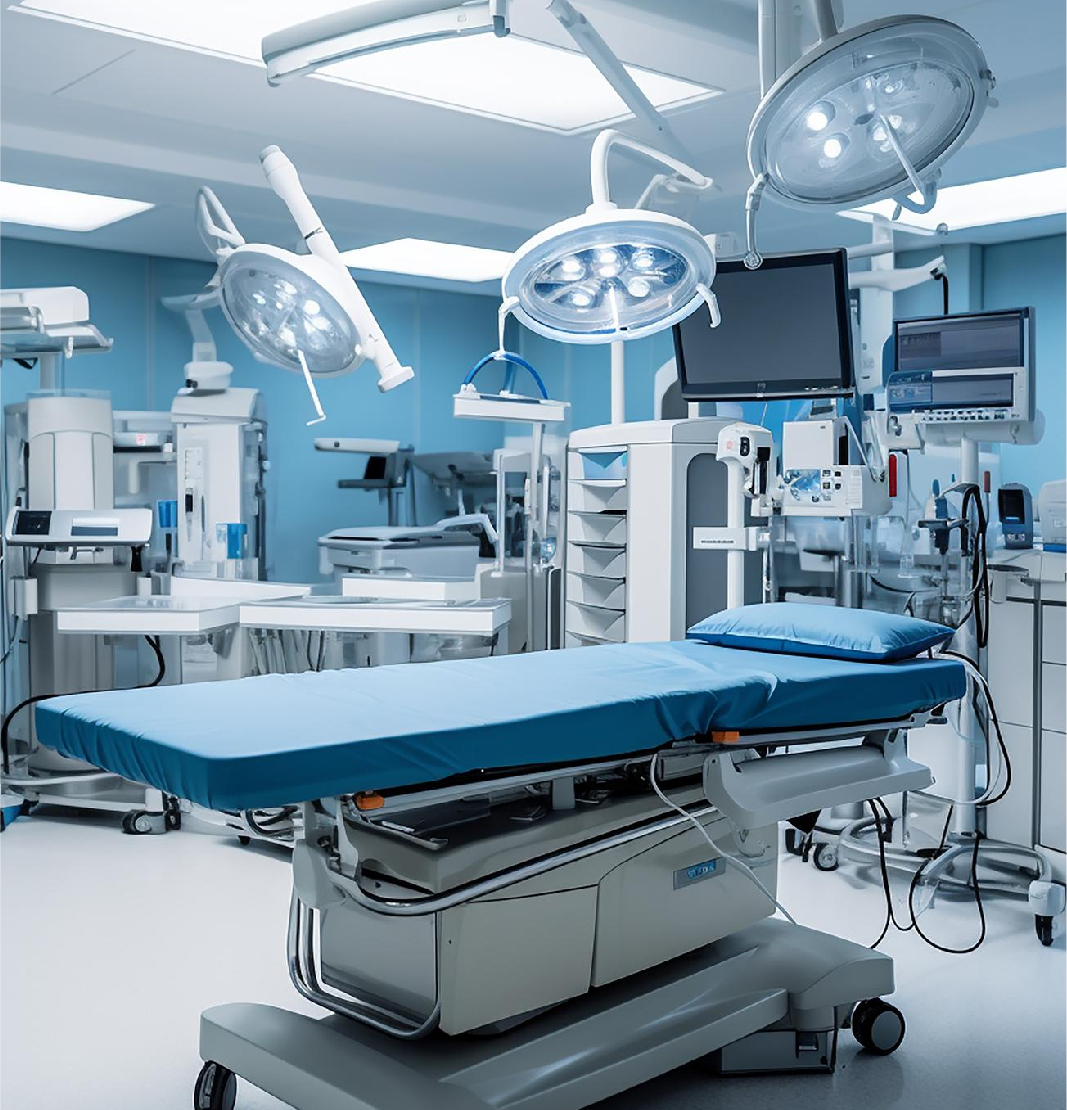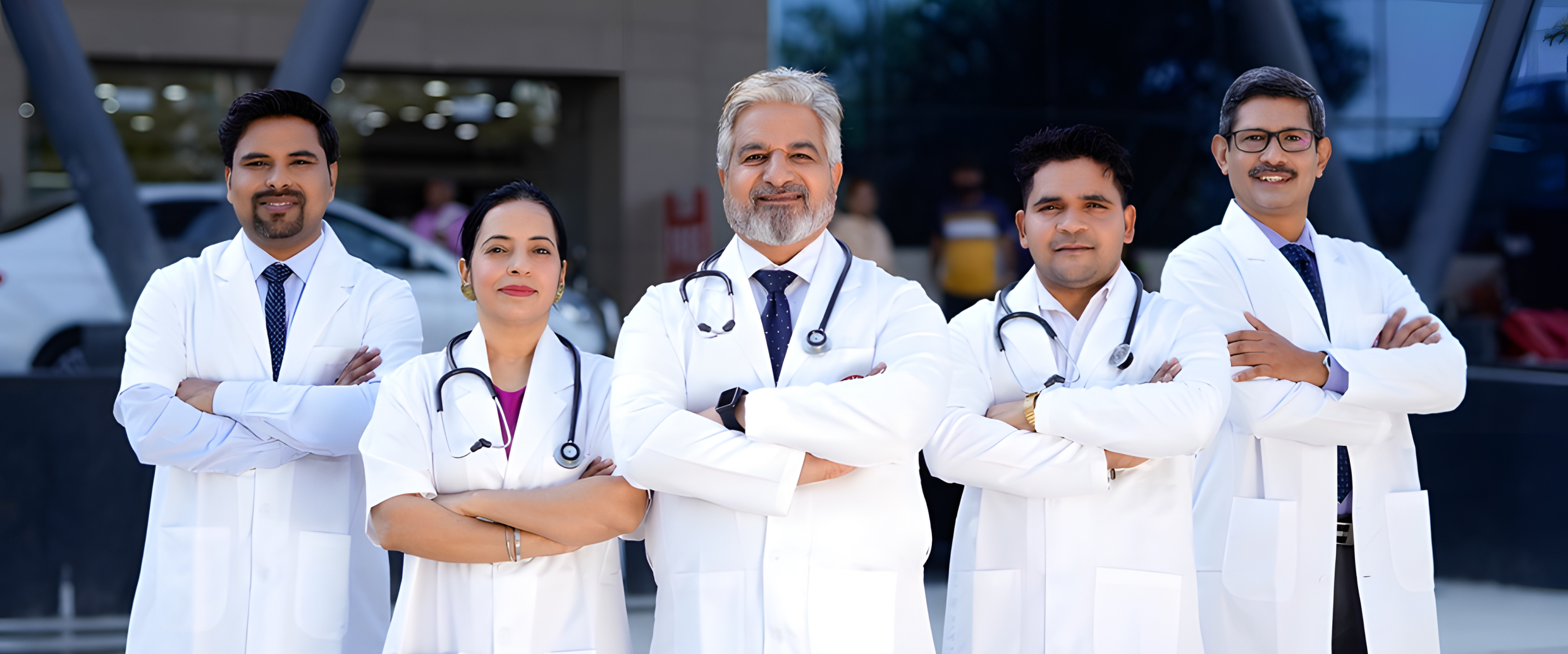
Welcome to Bhagwan Mahaveer Cancer Hospital & Research Centre (BMCHRC), a beacon of hope and healing for individuals confronting Gastroscopy Colonoscopy. Our institution stands as a pillar of comprehensive care, where cutting-edge treatments merge with compassionate support to guide patients towards optimal health outcomes.
Welcome to Bhagwan Mahaveer Cancer Hospital & Research Centre (BMCHRC), where we stand at the forefront of Gastrointestinal Oncosurgery, providing unparalleled care for patients battling cancers of the digestive system. Our institution combines advanced surgical techniques with compassionate support to offer comprehensive treatment solutions tailored to each patient's unique needs.

Gastrointestinal Cancers encompass a range of malignancies affecting organs such as the Stomach, Liver, Pancreas, Colon, and Rectum. These cancers pose significant challenges due to their complexity and varied presentations. Early diagnosis and multidisciplinary treatment are essential for optimizing outcomes in patients with gastrointestinal malignancies.

At BMCHRC, we adopt a multidisciplinary approach to Gastrointestinal Cancer Care, bringing together a diverse team of Surgical Oncologists, Gastroenterologists, Radiologists, Medical Oncologists, and support staff. This collaborative effort ensures that patients receive comprehensive evaluation, personalized treatment planning, and coordinated care throughout their Cancer journey.

Driven by a commitment to excellence, BMCHRC is equipped with state-of-the-art surgical facilities and technology, enabling our Surgical Oncologists to perform complex Gastrointestinal procedures with precision and expertise. From Minimally Invasive techniques such as Laparoscopy and Robotic Surgery to advanced intraoperative imaging and navigation systems, we leverage the latest innovations to achieve optimal surgical outcomes for our patients.

We understand that a diagnosis of gastrointestinal Cancer can be overwhelming for patients and their families. That's why we provide compassionate support services to address the physical, emotional, and practical needs of our patients throughout their treatment. Our dedicated team offers guidance, education, and assistance to help patients navigate the challenges of Cancer diagnosis and treatment with resilience and hope.

Proper Nutrition is crucial for patients undergoing Gastrointestinal Cancer treatment to support healing and maintain strength and vitality. Our registered dietitians work closely with patients to develop personalized nutrition plans tailored to their specific dietary needs and treatment goals. Whether it's managing dietary restrictions, addressing nutritional deficiencies, or optimizing hydration, we provide comprehensive nutritional support to promote overall well-being.

In addition to conventional medical treatments, we offer access to integrative therapies designed to complement Cancer care and enhance overall well-being. From Acupuncture and Massage Therapy to mindfulness practices and stress-reduction techniques, these Therapies can help alleviate symptoms, reduce treatment-related side effects, and improve quality of life for patients undergoing Gastrointestinal Cancer treatment.

At BMCHRC, we believe in empowering patients through education and active participation in their treatment decisions. Our comprehensive patient education programs provide valuable information and resources to help patients make informed choices about their care. Through personalized education sessions and ongoing support, we empower patients to take control of their health and well-being throughout their cancer journey.
As part of our commitment to advancing cancer care, BMCHRC actively participates in pioneering research initiatives and clinical trials focused on Gastrointestinal Cancers. Through our research efforts, we strive to identify innovative treatment approaches, improve treatment outcomes, and ultimately find a cure for Gastrointestinal malignancies.
Gastroscopy, also known as upper Endoscopy, is a procedure that allows a Gastroenterologist to examine the lining of the Esophagus, stomach, and upper part of the small intestine using a thin, flexible tube with a camera and light source.
Colonoscopy is a procedure that allows a Gastroenterologist to examine the lining of the Colon (Large Intestine) and rectum using a long, flexible tube with a camera and light source called a Colonoscope.
Gastroscopy and Colonoscopy are used to diagnose and treat a variety of Gastrointestinal conditions, including Gastroesophageal Reflux Disease (GERD), Peptic Ulcers, Gastrointestinal Bleeding, Inflammatory Bowel Disease (IBD), Colorectal Cancer, and Polyps.
Gastroscopy and Colonoscopy are typically performed as outpatient procedures under sedation or anesthesia. During the procedure, the endoscope is inserted through the mouth (for Gastroscopy) or the Rectum (for Colonoscopy) and advanced through the digestive tract while the gastroenterologist visualizes the images on a monitor.
Sedation or Anesthesia is often used during Gastroscopy and Colonoscopy to help patients relax and minimize discomfort during the procedure. Your healthcare provider will discuss the options for sedation or anesthesia and help you choose the most appropriate option based on your medical history and preferences.
Preparation for Gastroscopy and Colonoscopy typically involves fasting (not eating or drinking) for a certain period before the procedure and taking laxatives or other bowel preparation medications to cleanse the digestive tract. Your healthcare provider will provide specific instructions on how to prepare for your procedure.
Gastroscopy and Colonoscopy are not usually painful, as sedation or Anesthesia is used to minimize discomfort during the procedure. Some patients may experience mild discomfort or bloating afterward, but this typically resolves quickly.
The duration of a Gastroscopy or Colonoscopy procedure varies depending on factors such as the complexity of the procedure and the findings. On average, the procedure may take 15 to 30 minutes, although it may take longer if additional interventions or treatments are needed.
While Gastroscopy and Colonoscopy are generally safe procedures, they carry some risks, including bleeding, perforation (tear) of the digestive tract, reaction to sedation or anesthesia, and infection. Your healthcare provider will discuss these risks with you before the procedure and take steps to minimize them.
After the procedure, patients are monitored in a recovery area until the effects of sedation or anesthesia wear off. Some patients may experience mild side effects such as bloating, gas, or a sore throat, but these typically resolve within a day or two.
The results of your Gastroscopy or Colonoscopy will be discussed with you by your Gastroenterologist after the procedure. If biopsies or other tests are performed during the procedure, it may take several days for the results to be available.
It is recommended to have someone accompany you to your Gastroscopy or Colonoscopy appointment, as sedation or anesthesia is used, and you may not be able to drive or make decisions immediately afterward. Your companion can provide support and assistance during and after the procedure.
After the procedure, you may be advised to avoid eating or drinking for a period of time until the effects of sedation or anesthesia wear off. Your healthcare provider will provide specific instructions on when you can resume normal activities, including eating and drinking.
Following a Gastroscopy or Colonoscopy, you may be advised to avoid strenuous activities, driving, and operating machinery until the effects of sedation or anesthesia wear off completely. Your healthcare provider will provide specific guidance based on your individual circumstances.
The frequency of Gastroscopy and Colonoscopy screenings depends on factors such as your Age, Medical History, Family History of Gastrointestinal conditions, and personal risk factors for Colorectal Cancer. At BMCHRC, screening frequency for Gastroscopy and Colonoscopy varies based on individual factors like age, medical history, and family background. Our team customizes screening schedules according to your needs and guidelines from leading medical organizations. We're committed to your health, providing personalized care for early detection and prevention.